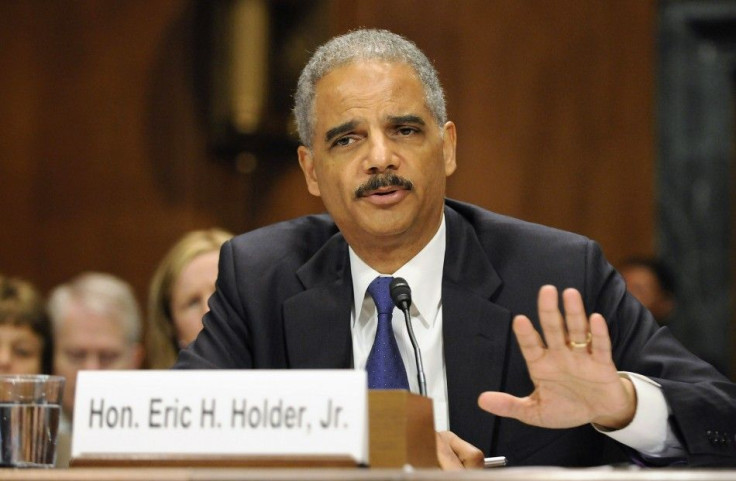Holder Reaches Out To Media Amid New Round Of Inquiries

U.S. Attorney General Eric Holder’s attempt to make peace with news organizations over the Justice Department’s acquisition of journalists’ communications records comes amid a new round of questioning about his involvement in obtaining a Fox News reporter’s emails.
On Thursday, Holder will host an off-the-record discussion with representatives of media organizations to discuss tightening guidelines for when the Justice Department can get warrants and subpoenas for journalists’ records. Some news organizations, including the New York Times, declined to attend.
But overshadowing the meeting is a fresh round of questions from two congressional Republicans who have raised the possibility that the attorney general misled Congress about his own role in obtaining the emails of reporter James Rosen of Fox News.
During a May 15 hearing, Holder told the House Judiciary Committee that he had no knowledge of the Espionage Act being used to acquire records from journalists. "With regard to potential prosecution of the press for the disclosure of material, that is not something that I have ever been involved in, heard of, or would think would be a wise policy," he said. But subsequent news reports show that the search warrant for Fox News phone records claimed Rosen may have violated the Espionage Act and that Holder himself approved of the warrant application.
In a letter sent to Holder Wednesday, Judiciary Committee Chairman Bob Goodlatte, R-Va., and Rep. F. James Sensenbrenner, R-Wis., chairman of the Subcommittee on Crime, Terrorism, Homeland Security and Investigations, asked the attorney general a list of questions about the apparent contradiction. “The media reports and statements by the [Justice] Department regarding the search warrants for Mr. Rosen’s emails appear to be at odds with your sworn testimony before the Committee,” the congressmen wrote.
The letter means that Holder could face accusations of perjury on top of the controversy over federal prosecutors secretly obtaining phone records from the Associated Press as part of an investigation into a leak of classified national security information. A subsequent report by the Washington Post revealed that the DOJ had acquired Rosen's phone and email records during a 2010 investigation into a leak of classified information on North Korea. That investigation ultimately led to the prosecution of State Department official Stephen Kim.
In a statement responding to the letter Wednesday, a DOJ official told NBC News, “We have received the chairmen’s letter and we look forward to both describing the department’s policies and establishing that the attorney general’s testimony concerning the potential prosecution of the press was consistent with the underlying facts with respect to the investigation and ultimate prosecution of Mr. Kim.”
© Copyright IBTimes 2024. All rights reserved.






















